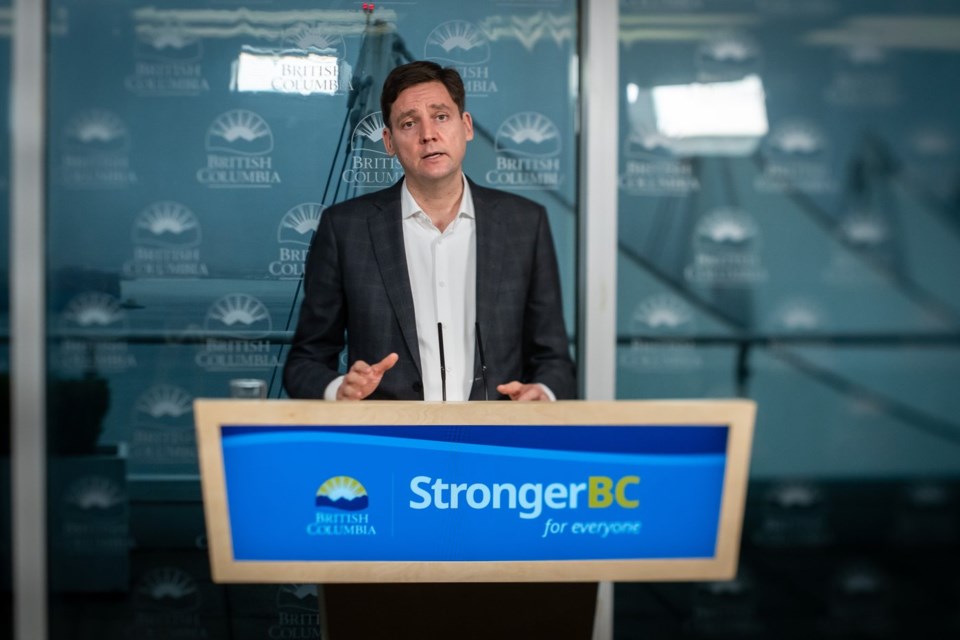British Columbians should rethink trips to the United States and purchases of American products, as the province establishes a task force to respond to U.S. President Donald Trump's threatened tariffs, Premier David Eby said.
Trump's proposed 25 per cent tariffs on Canadian exports would be a "deliberate economic attack" on B.C. families and people should think carefully about spending money in a country that wants to do them economic harm, Eby said during a news conference in Vancouver on Tuesday.
Metal cranes and piles of sea containers at the busy Port of Vancouver could be seen in the background where he spoke at the Vancouver cabinet offices.
"It feels very strange to say but I really do think that for Canadians right now, when you're planning your March break vacations, when you're planning your summer vacations, if the tariff threat is realized, the deliberate economic attack on families in our province, in our country, by the president of the United States, that we really should think carefully about spending our money in that country," Eby said.
He also urged residents to read the labels of products they buy to make sure they are supporting Canadian-made goods.
"I hope for British Columbians at home, when you're at the grocery store and you have a chance to buy a product, right now you're looking carefully at the labels to support Canadian jobs and to support Canada at this critical time," he said.
Bryan Yu, chief economist for Central 1 Credit Union in Vancouver, said that while affordability issues may prevent many shoppers from buying Canadian-made goods, the economic impact from the threatened tariff could naturally reduce travel to the United States.
鈥淐anadians broadly in that scenario would also be in a situation where they probably wouldn鈥檛 be travelling that much and a weak Canadian dollar would probably also mean that we would see fewer travel to the U.S. market," Yu said.
Reduced purchases of U.S. goods in Canada will send a message, but it may be short-lived, said Werner Antweiler, an economics professor at the Sauder School of Business at the University of B.C.
鈥淏asically it will come down to, which messages are being heard and where," Antweiler said, adding that he is skeptical of notions to buy domestically, especially when foreign goods are better or cheaper.
The premier said the task force includes representatives from the business, Indigenous and labour communities to co-ordinate the provincial response to the tariff threat.
It will be co-chaired by Vancouver International Airport president Tamara Vrooman, Teck president Jonathan Price and Greater Vancouver Board of Trade president Bridgitte Anderson.
The B.C. government supports the federal government鈥檚 plan to establish retaliatory tariffs on Republican districts if the U.S. tariffs dispute, Eby said.
"For retaliatory measures, for the province of British Columbia, everything is on the table," Eby said.
On the day of the U.S. president's inauguration Monday, Trump said he wanted 25 per cent tariffs imposed on Canada and Mexico by Feb. 1, although his executive order calling for an investigation of trade says its report is not due until April 1.
This report by The Canadian Press was first published Jan. 21, 2025.
Marcy Nicholson, The Canadian Press




